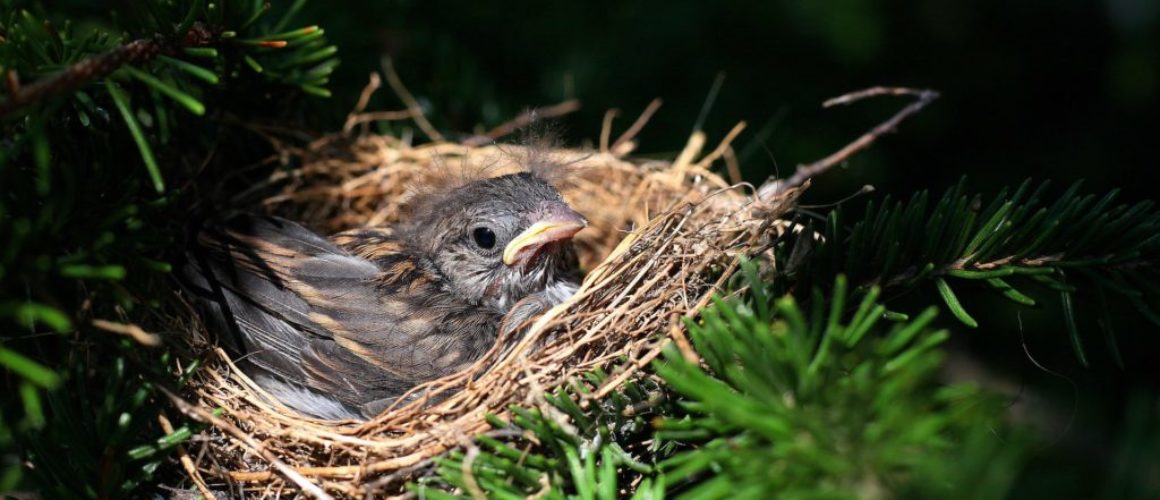How to stop birds from nesting
There are more than 600 bird species in the UK alone, and while not all of them will nest on your property, it is important to take measures to prevent nesting.
This article explores how to stop birds from nesting in different parts of your property, and how to respond if you discover an infestation.
When do birds start nesting in the UK?
The bird nesting season starts in February and ends in August, but many bird species will nest outside of these months. In particular, you should keep a watchful eye for birds nesting on your property during springtime. It is also important to note that pigeons can nest year-round.
When do birds stop nesting in the UK?
Typically, most bird species in the UK stop nesting by August, making it safe to cut trees and trim hedges. However, many birds still nest outside these months, and it is important to check before making any alterations to your property. All bird species in the UK are protected by The Wildlife and Countryside Act 1981 (Part I), which ensures the protection of birds, their nest and eggs. As a result, it is illegal to kill, injure or destroy a nest or egg of any wild bird.
How to get rid of birds’ nests
As explained above, birds’ nests are protected, and moving them at the wrong time could mean breaking the law. The law stipulates that nests can be removed as long as they are not currently being built or are in use, with the exception of some specific species on Schedule ZA1. Currently, this includes the Golden Eagle, the White-Tailed Eagle and the Osprey, as these species tend to reuse their nests. It is also important to remember that some bird species will have more than one brood in the same nest that season, so you should always wait until the end of the season to begin removals.
How to stop birds nesting in roofs
Roofs are one of the most common places that many bird species decide to nest, but understandably it can be problematic for property owners. To deter birds from nesting on your roof, work to deny them access should be carried out during the winter months when they typically don’t nest. This should include carrying out checks on the property and cleaning out or sealing any holes or gaps that would be appealing to birds.
If you have a larger site or a commercial property, it may be difficult to ensure every nook and cranny is sealed and to check that no birds remain. In this instance, you may want to consult a specialist in Bird Proofing solutions for advice on how best to protect your property.
How to stop birds nesting in gutters
Just as birds nesting on roofs can be problematic for property owners, so can birds nesting in gutters. If a nest is built in your guttering, it can quickly lead to structural damage if the fascia boards rot, making it easier for water to enter the property. Before long, there can be damage to your windows, ceilings, walls and woodwork if water cannot adequately drain.
To stop birds from nesting in your gutters, you should ensure they are kept as clean as possible. By keeping your property and guttering clear of debris, leaves, moss and mud that birds tend to use to build their nests, you can help to deter them from nesting there. You can also install gutter guards, or replace your guttering, to make them more efficient at flushing out any dirt and debris. It is crucial to ensure that birds haven’t already nested if you install gutter guards made of wire as they may become trapped.
How to stop birds nesting in eaves
Removing birds from eaves is always tricky, which is why taking preventative measures is the best course of action to avoid this problem. The first step is to check your eaves and soffits for any holes that could be a perfect place for birds to nest inside. Filling the gaps with caulk after confirming there are no existing eggs or nests inside is a great way to keep birds from finding shelter.
You can also use physical barriers to stop birds from entering your eaves in the form of bird netting, spikes or coils. These can be installed along your roof to ensure no birds can find space in your eaves during the nesting season. Birds are also attracted to areas that provide a good source of food and shelter, and by cutting off any food sources on-site such as open litter bins, you can encourage birds to nest elsewhere.
Get in touch
With more than 25 years of experience in the field, our team of highly-trained technicians specialise in commercial pest control throughout the North West.
If you would like to find out more about bird proofing your property, or suspect that there are birds nesting, don’t hesitate to get in touch with us today on 0151 345 6854 or email us at info@urbanhawks.co.uk.

